Vaccinations and Wellness
Blood Work Opens a Window to Your Pet’s Health
It was a typical day during Dental Awareness Month at Bingle Vet, when a client called Mrs. Jones bought Angel in for her annual dental cleaning. Angel is a beautiful, spunky, white, five-year-old toy poodle, who knows and is loved by everyone in the clinic. On this day, like every time she visits, Angel bounced through the clinic, head high, little pompom tail wiggling as fast as it could from side to side, a picture of perfect health.
Prior to dental cleaning, we always recommend blood work to assure that the pet is healthy enough to withstand sedation. Our typical day turned gray when we completed Angel’s blood test… (click to read more)

Is your pet up to date on vaccines?
Annual bloodwork gives you peace of mind knowing your fur-baby is healthy.
Pet Vaccinations
By focusing on preventive health care, you are taking an important step in keeping your friend happy and healthy for years to come. The vaccine that your pet receives is designed to stimulate a specific immune response to help protect them against illness in the event of future exposure to the actual disease. Vaccines provide proven life-saving benefits and are associated with minimal risks. Most dogs and cats respond favorably following vaccine administration with minimal to no adverse consequences. However, vaccinating any patient carries some risk.
Your pet may display short-lived side effects for up to 1-2 days, following the administration of any vaccine:
- Reduced appetite or loss of appetite (lasting for one or two feedings)
- Pain at the injection site
- Lethargy (Lack of activity)
- Reluctance to walk/run
- Mild fever
Contact your veterinarian if any of these signs progressively worsen or continue beyond 1-2 days.
Contact your veterinarian immediately if your pet develops any of these less common but more serious signs:
- Vomiting
- Diarrhea
- Collapse
- Difficulty breathing
- Facial swelling
- Itchy or bumpy skin (“hives”)
Sometimes a small firm swelling (“lump”) my develop at the injection site. This is expected to resolve within 1 month. Contact your veterinarian if the swelling:
- Is still painful after 1-2 days
- Continues to grow
- Persists beyond 1 month
Vaccinations and Wellness FAQs
Are vaccinations really necessary?
Vaccinations help protect your pet from a number of potentially serious and even fatal diseases, such as Rabies. Not only that, vaccinations cost considerably less than the treatments available for the diseases pets are normally vaccinated against. Every pet should be vaccinated – even indoor dogs and cats can be exposed to a rabid bat.
How do vaccinations work?
Vaccines contain viruses or bacteria that have been modified so that they will not cause disease. When an animal is vaccinated, it stimulates two parts of the animal’s immune system. One is the production of antibodies, the other is the stimulation of cell mediated immunity, which, in combination, mount a response against the bacteria or virus in question. If the dog or cat is later exposed to that disease, the two parts of the immune system will react quickly to destroy the disease-causing agent.
When should my pet start seeing a veterinarian?
It’s important to get your pet to a veterinarian right away for a general checkup. Dogs and cats rescued from a shelter should be seen by a veterinarian immediately, usually within 24 hours. Building a relationship with a veterinarian is very important. We always welcome new pets to simply come visit our practice, even when no services are needed. The love and attention they will receive from our team will help make future visits more enjoyable. Plus, we love to give our canine patients home-baked cookies to help build their trust in us.
Why is an annual bloodwork screen important?
The facts are clear. Approximately 20% of all senior dogs that appear healthy during a physical examination actually have an underlying, undetectable disease. Undetectable, that is, without a blood test. Blood work identifies a variety of health problems, including diabetes, kidney disease, liver disease, infection, anemia, Addison’s disease, and malnutrition. If these conditions are caught early, they can be treated before further complications set in. Once a pet starts showing signs of sickness or symptoms of disease, the condition is often so far advanced that it is difficult and costly to treat.
Blood work is an early detection tool that will help extend your pet’s life. It is a window into the body.
What are pet vaccines?
Vaccines help prepare the body’s immune system to fight the invasion of disease-causing organisms. Vaccines contain antigens, which look like the disease-causing organism to the immune system but don’t actually cause the disease. When the vaccine is introduced to the body, the immune system is mildly stimulated. If a dog is ever exposed to the real disease, his immune system is now prepared to recognize and fight it off entirely or reduce the severity of the illness.
When should puppies and kittens be vaccinated?
If the mother has a healthy immune system, a puppy or kitten will most likely receive antibodies in the mother’s milk while nursing. Puppies and kittens should receive a series of vaccinations starting at 6 to 8 weeks of age. We administer four sets of vaccinations at three-week intervals. The final dose should be administered around 16 weeks of age.
Why does my pet need regular booster vaccinations for the same disease?
The protection provided by a vaccine gradually declines over time. Your pet needs regular “booster” vaccinations to ensure ongoing immunity from disease.
Do I need to get my pet vaccinated every year?
This is a topic which is currently under investigation within veterinary medicine. Unfortunately, the duration of immunity for each vaccine is not currently known. While pet owners can have blood tests done on their pets to assess the pet’s antibody level, this does not test the level of immunity currently provided by the pet’s cell mediated immune system. Until more is known about the duration of immunity, the frequency and type of vaccines administered will vary. Talk to one of our veterinarians about the risk of viral and bacterial diseases in your area, and the need for one, two or three year vaccines.
When considering what is best for you pet, please remember that pets age faster than people. Pets can’t talk, and because “survival of the fittest” meant that only the healthy and strong survived in the wild, animals will try to hide any evidence of illness as long as possible. This means that there may not be any outward signs that your pet is ill until the disease is quite advanced. That’s why, in addition to having regular vaccinations, it is extremely important that your pet has an annual physical examination. By performing a yearly physical examination, our veterinarians can detect early signs of organ dysfunction and illness. With early diagnosis comes early treatment. Early treatment in turn leads to an increased life span and an improved quality of life for your pet.
What vaccines are available for dogs?
- Rabies
- Leptospirosis
- Distemper
- Lyme Disease
- Hepatitis
- Corona virus
- Parainfluenza
- Bordetella
- Parvovirus
- Giardia
- Canine Influenza (Flu Vaccine)
Speak with one of our veterinarians about which of these vaccines are necessary for your pet(s).
What vaccines are available for cats?
- Rabies
- Panleukopenia
- Feline leukemia
- Chlamydia
- Feline calicivirus
- Feline rhinotracheitis
- Feline infectious peritonitis
- Feline Immunodeficiency Virus (FIV)
Speak with one of our veterinarians about which of these vaccines are necessary for your pet(s).
Are vaccinations 100% safe and effective?
Although your veterinarian cannot guarantee that a vaccine will fully protect an animal against a given disease, vaccinations have proven to be the simplest, safest and most effective means of preventing a number of diseases in pets. It is important to administer vaccines only to healthy animals. If the animal is already suffering from an illness, or is receiving certain drugs, its immune system may not be able to respond to the vaccine. For that reason, prior to vaccinating your pet, our veterinarians will ask you about your pet’s medical history and perform a complete physical examination.
Puppies and kittens require a series of vaccinations during their first four months of life. Nursing pups and kittens receive antibodies from their mother’s milk (maternal antibodies) which protect them from disease during the first months of life. These same antibodies can prevent a vaccine from being totally effective. Consequently, as maternal antibodies decrease, one of our veterinarians will give your pet a series of vaccines spread over a period of 6 to 16 weeks of age, to provide your pet with the best possible protection. It is very important that you follow the vaccination schedule provided by our veterinarians. Missing a vaccine booster or being more than a few days late could put your pet at risk of contracting disease. It should also be noted that a very small percentage of pets are non-responders to vaccines; this means that no matter how many vaccines they get they are unable to develop an immunity towards the virus.
Puppies and kittens should not be exposed to unvaccinated dogs and cats, sick dogs and cats, or places where dogs and cats roam (public parks etc.) until they have completed their puppy or kitten series of vaccinations.
Despite our veterinarian’s efforts to design a safe vaccination protocol for every pet, vaccine reactions can and do occur. Thankfully, they are not common. Like a drug, a vaccine is capable of causing an adverse reaction. Some of these reactions are mild (some discomfort at the injection site, lethargy or loss of appetite for a day or so). Some of these reactions are more severe (allergic reaction, immunologic reactions). If your pet has reacted to a vaccine in the past, please let us know.
I've heard that some vaccinations cause cancer in cats. Is this true?
Vaccination-induced sarcomas (a form of cancer) in cats are rare. They occur most commonly with Rabies and Feline Leukemia vaccinations. It is important for you and one of our veterinarians to decide if the risk of your cat being exposed to these diseases is greater than the potential risk of developing a vaccine-induced sarcoma. If the benefits of vaccination outweigh the risk of vaccination, then the vaccination should be given. If your cat develops a lump at the injection site, please let one of our veterinarians know. If should be noted that Bingle Veterinary Clinic offers vaccines designed exclusively for cats to minimize the risk of sarcomas in cats.



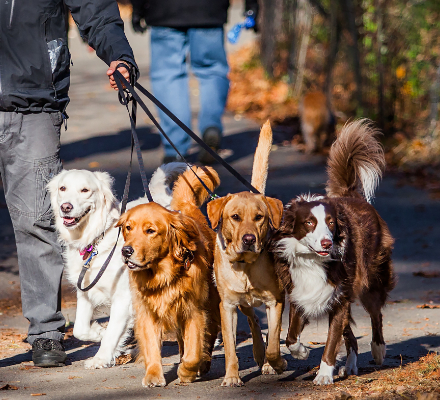
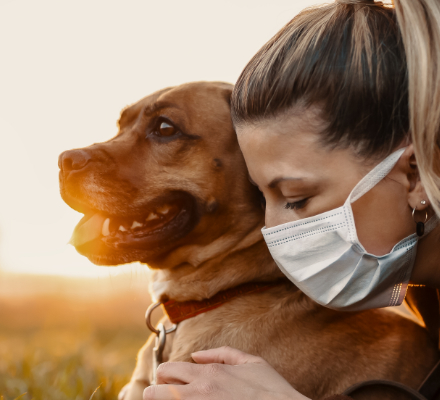
For compassionate service, call us today!
We understand that your pets are more than just pets, they are family.
Key to Your Pet’s Health – In an effort to help all pets live longer, healthier and happier lives we recommend:
- Twice-a-year wellness exams to help detect, treat and prevent health problems before they become serious
- Disease prevention based on your pet’s lifestyle, the threats in your area and other risk factors
- Pet owner education, especially awareness of the pet aging process
Preventative Healthcare – The key to a healthy pet is the early detection and prevention of disease.
The gradual onset of health problems in an apparently healthy pet often go unnoticed. Once symptoms appear the condition may be too difficult or costly to diagnose and treat. Age is not a disease; however, there are many conditions, that if diagnosed early, can be completely reversed or controlled for extended periods of time.
Regular dental care, vaccinations, parasite control and a balanced diet are essential for the health of your pet. Laboratory testing plays an integral role in the early detection of changes in your pet’s health. Diagnostic tests provide essential information by which your veterinarian can identify blood disorders, kidney and liver disease, diabetes, infection, cancer, thyroid disease and other hormonal problems.
For a more detailed explanation of diagnostic laboratory testing, ask one of our veterinarians today about participating in a wellness program – for the health of your pet.
Four Basic Wellness Tests
Complete Blood Count – This tests for anemia, infection, inflammation and the healthiness of blood cells.
Chemistry Tests – These panels survey many of the organ systems of the body to make sure they are working properly.
Thyroid Function Tests – These tests are useful in diagnosing increased (hyper) or decreased (hypo) functions of the thyroid glan
Urinalysis – This test assesses the health and function of the urinary system. This is especially important in older animals to help with the early detection of kidney disease.
Ask Yourself These Early Detection Questions
- Bad breath or drooling
- Change in appetite or weight
- Change in attitude or responsiveness
- Change in sleeping patterns
- Change in urination (amount or frequency)
- Change in water consumption
- Confusion or disorientation
- Constipation, diarrhea, or vomiting
- Coughing
- Heavy or rapid breathing at rest
- Incontinence
- Lethargy or depression
- Lumps or bumps on or under the skin
- Noticeable decrease in vision (e.g., bumping into furniture)
- Sneezing
- Stiffness (e.g., trouble jumping, climbing stairs, or walking)
Other Veterinary Services
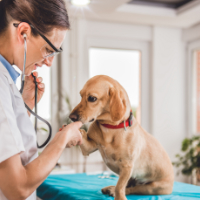
Vaccinations and Wellness
By focusing on preventive health care, you are taking an important step in keeping your friend happy and healthy for years to come.
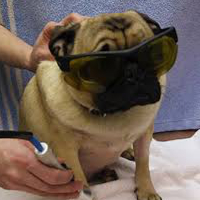
Therapy Laser
The beneficial effects of laser light on tissue were first recognized almost forty years ago. Since then, there have been thousands of studies documenting the positive effects laser light has on different types of cells, tissue, and disorders.

Microchipping
The HomeAgain® Pet Recovery Service is a safe, simple and permanent form of pet identification designed to quickly identify lost pets and reunite them with their owners.

Spaying and Neutering
Female dogs and cats are spayed by removing their reproductive organs, and male dogs and cats are neutered by removing their testicles. In both cases the operation is performed while the pet is under anesthesia.
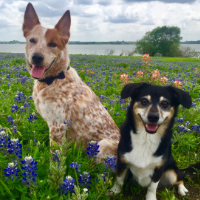
Allergy Testing and Treatment
The most common sign of allergy in dogs and cats is itching, manifested by scratching, rubbing, licking and chewing. The scratching and itching that are due to allergies are always more intense than normal and may lead to varying degrees of hair loss and rashes.
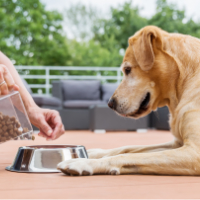
Diet and Nutrition
We offer a variety of veterinary-exclusive therapeutic and wellness diets for better health. Nutrition can help your pet’s body recover faster, stay healthy longer and even help defend against health issues.

Dental Care
The most common dental problems dogs experience is buildup from plaque and calculus. If left unchecked, plaque and calculus buildup can eventually cause inflammation of both the gums (gingivitis) and the membrane lining of the tooth socket (periodontitis).

Travel in the US
Currently, Bingle Vet is only offering travel services for pets traveling within the United States.
For compassionate service, call us today!
We understand that your pets are more than just pets, they are family.
Our Locations
Spring Branch / Memorial Villages
2025 Bingle Rd.
Houston, TX 77055
713-468-1676
Katy / Fulshear
5215 FM 1463, Ste. 400
Katy, TX 77494
713-468-3688


